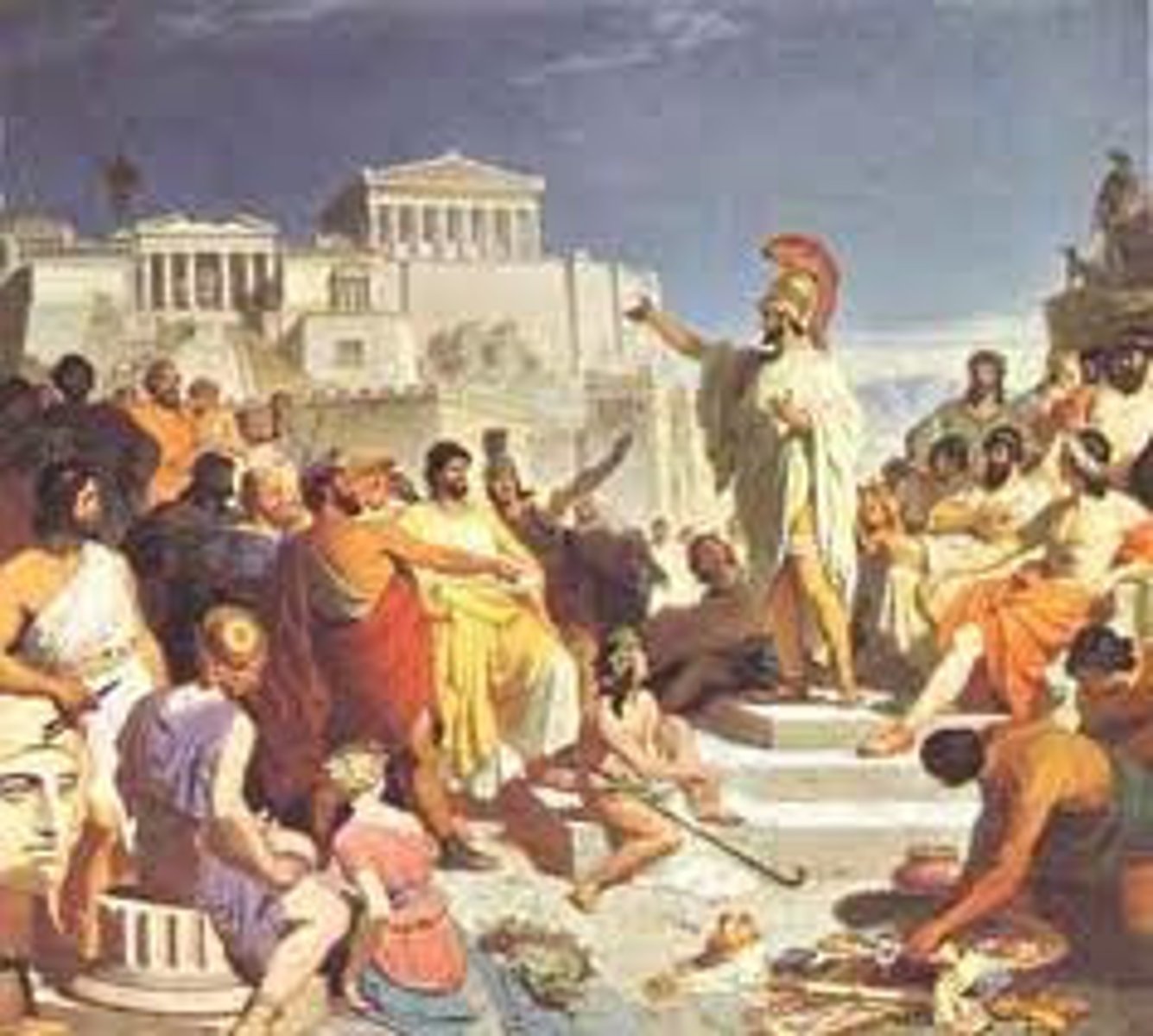Chapter 5 Vocabulary
1/25
There's no tags or description
Looks like no tags are added yet.
Name | Mastery | Learn | Test | Matching | Spaced |
|---|
No study sessions yet.
26 Terms
Scholar-Gentry
A social class in China that consisted of educated individuals who were often involved in government and administration.
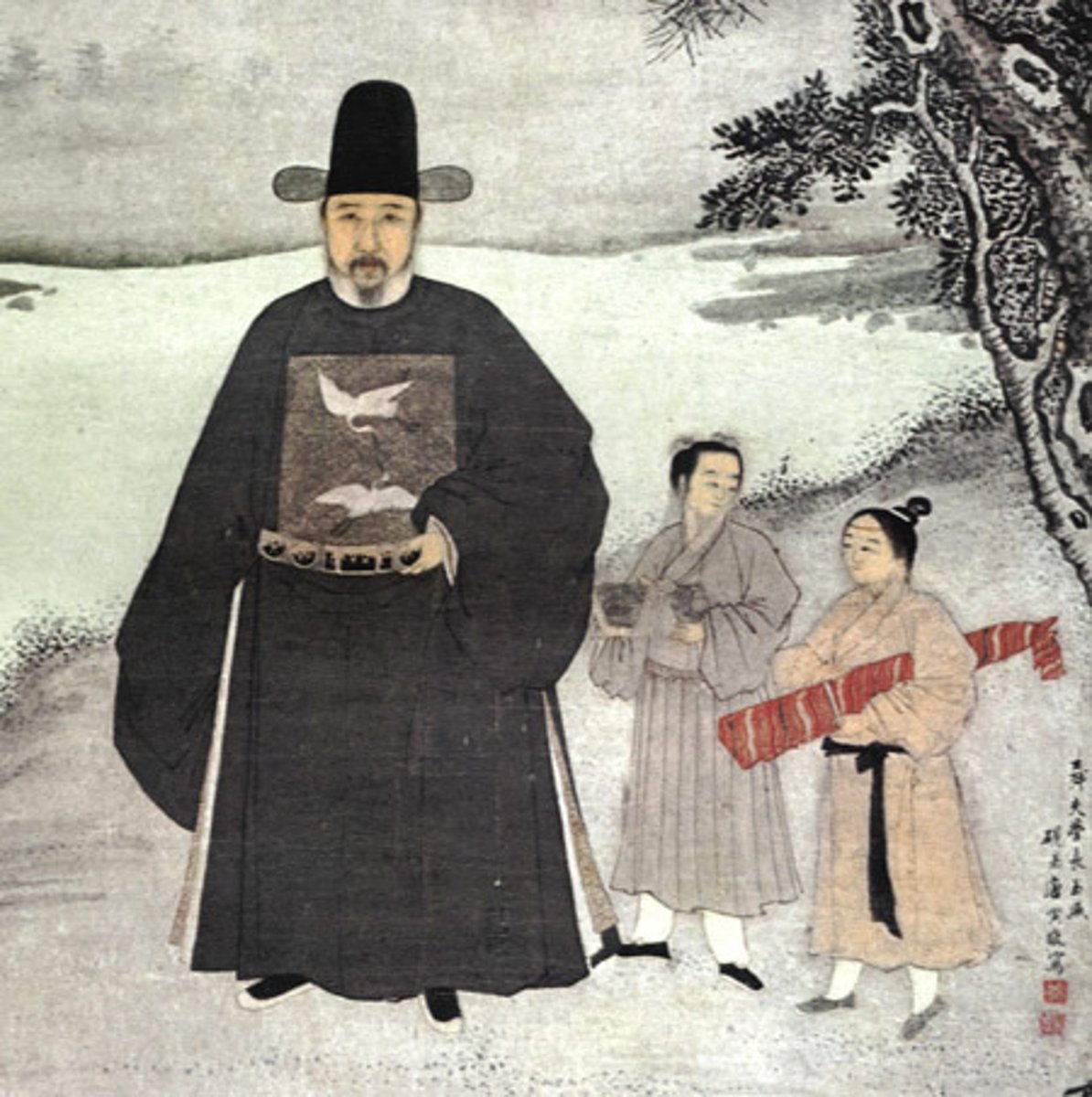
Wang Mang
A Chinese politician and usurper who founded the Xin dynasty and attempted to reform the Chinese economy and society.
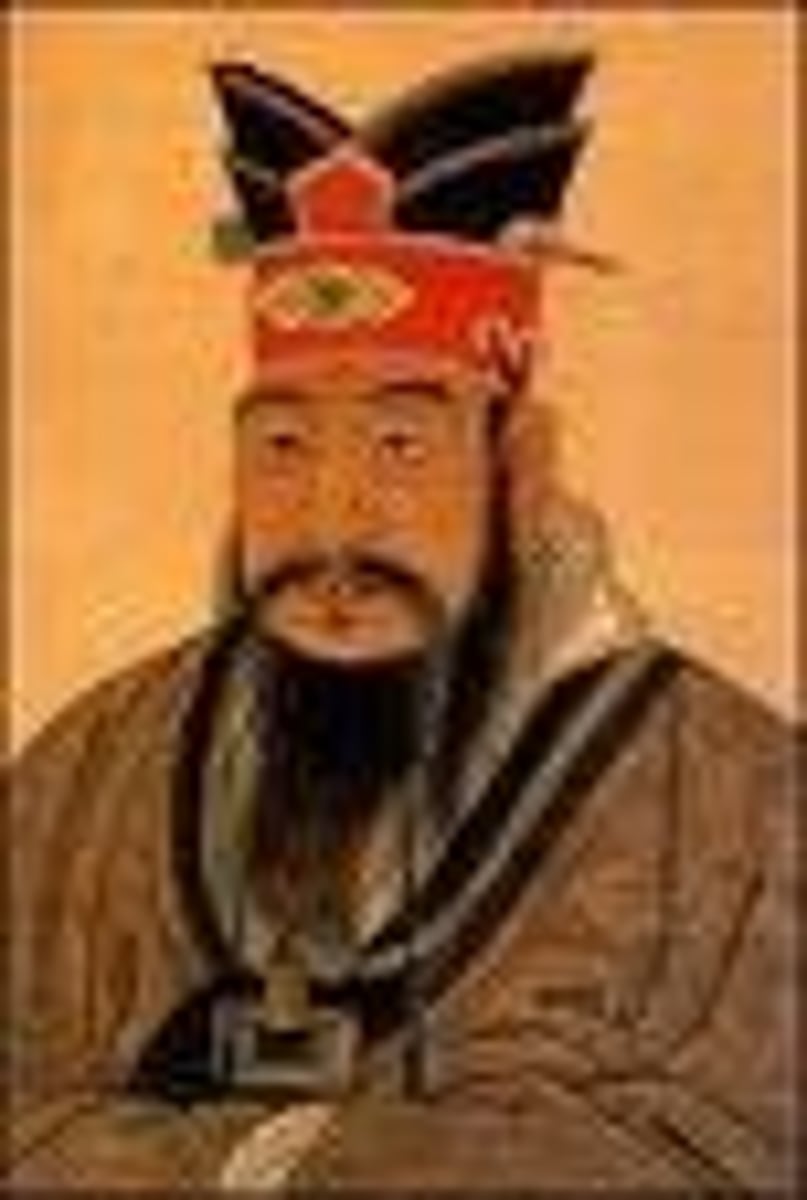
Ge Hong
A Chinese scholar and alchemist known for his contributions to Daoism and the development of Chinese medicine.
Yellow Turban Rebellion
A peasant revolt in China during the late Han dynasty, led by the Daoist sect known as the Yellow Turbans.
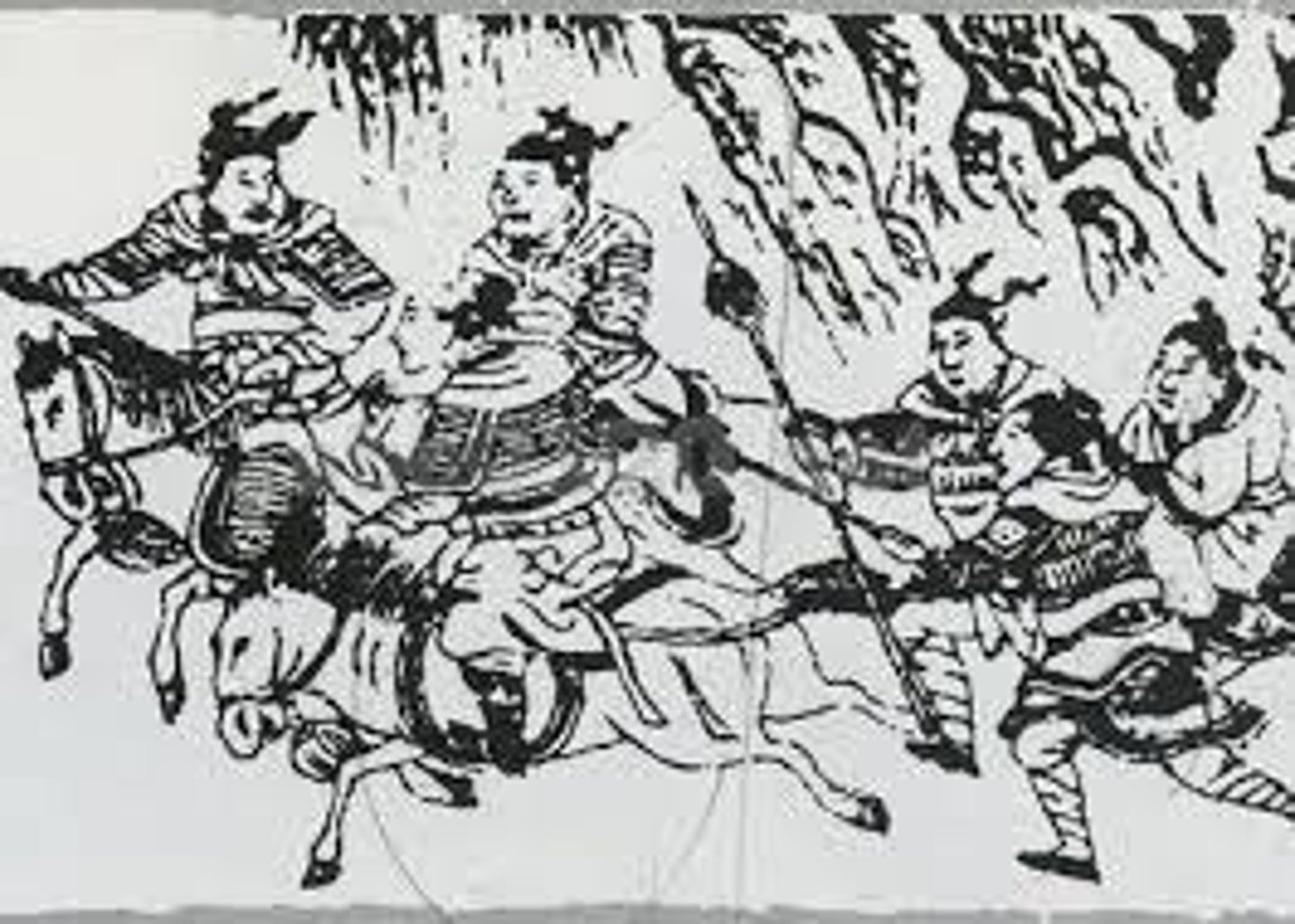
Varna
The four main social classes in ancient Indian society: Brahmins, Kshatriyas, Vaishyas, and Shudras.
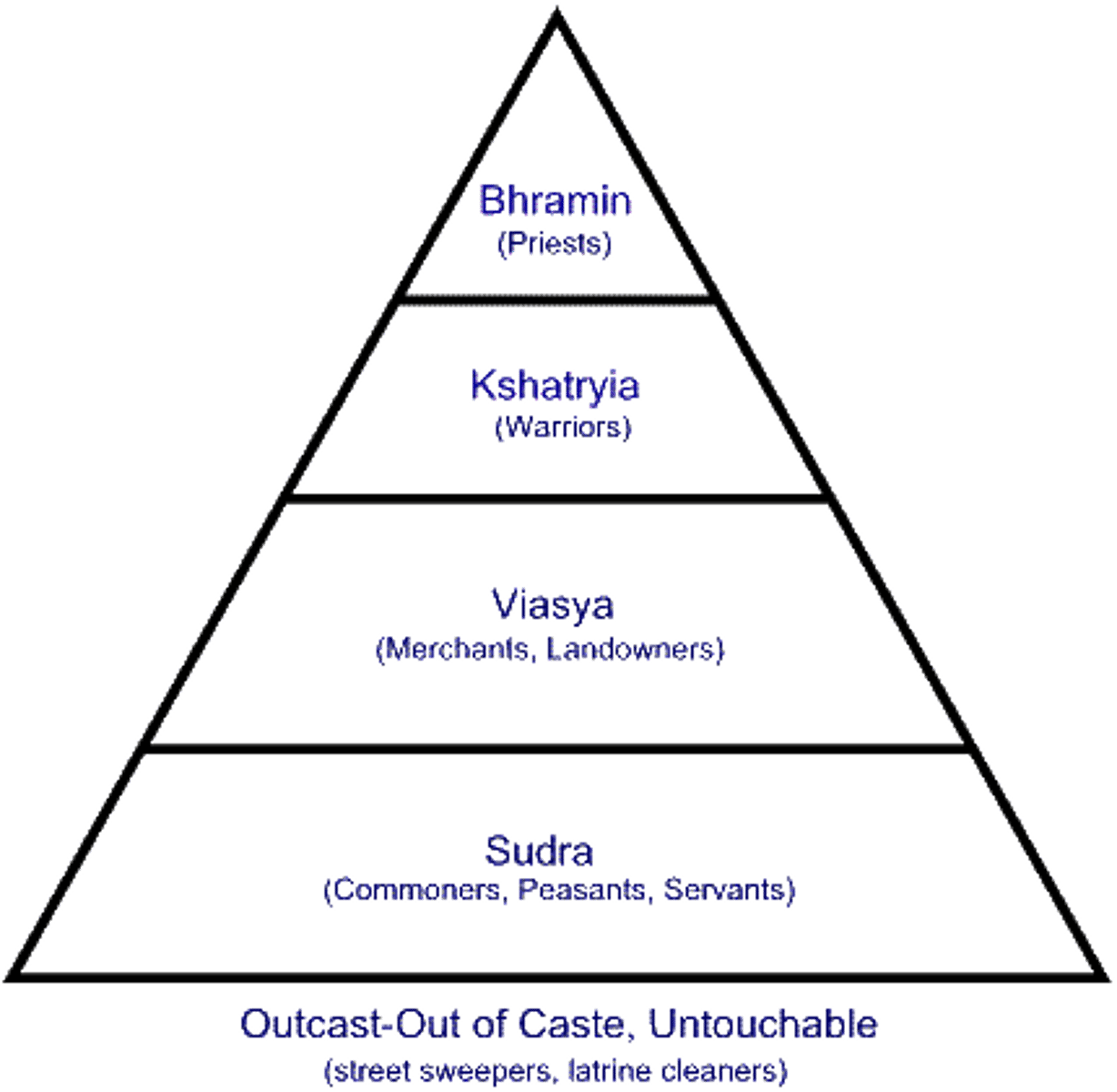
"Jatis"
Sub-categories within the Varna system in India, often referred to as castes.
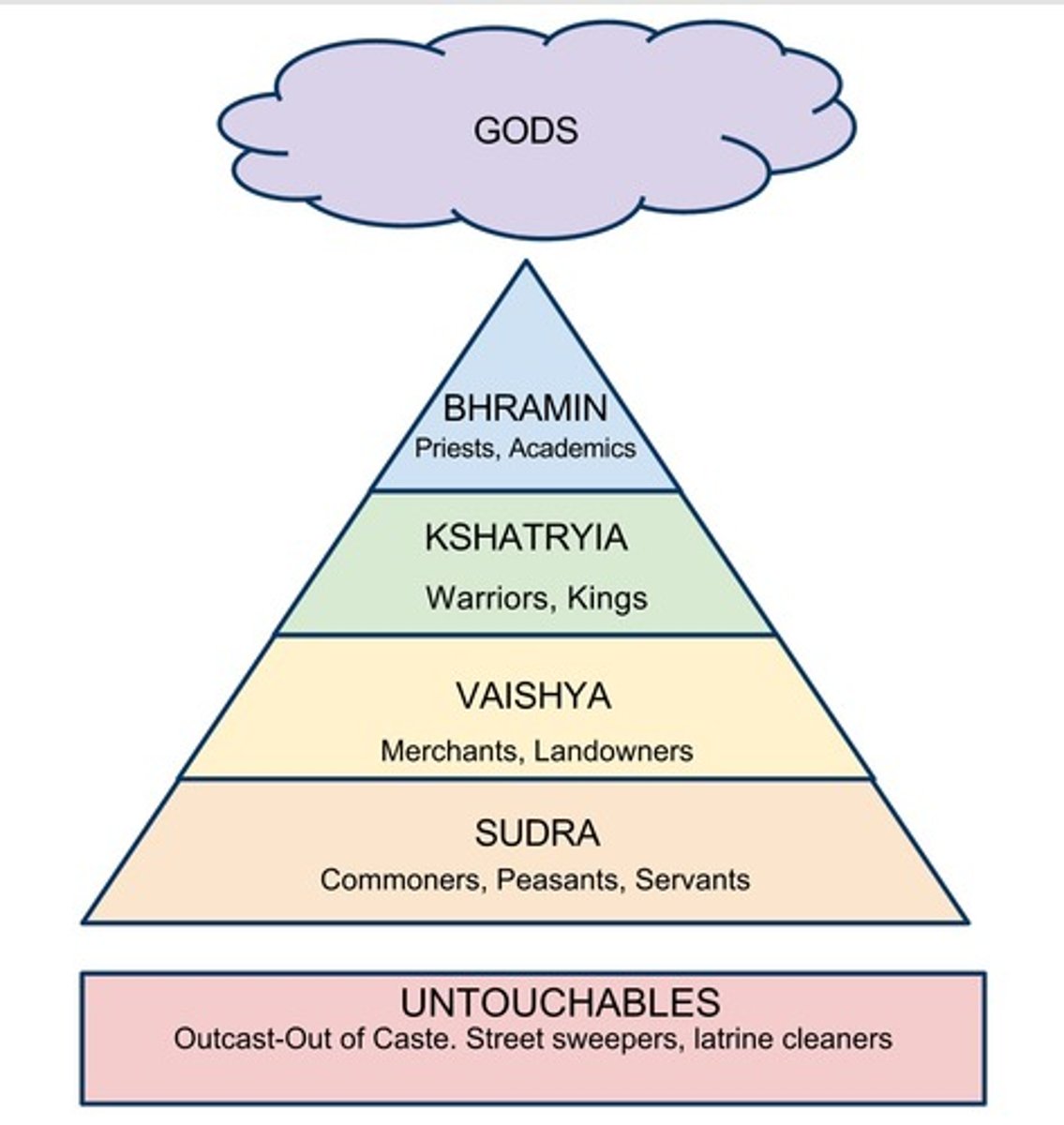
"Ritual purity" in Indian social practice
The concept of maintaining cleanliness and purity in accordance with social and religious norms.
Slavery
A system in which individuals are owned by others and forced to work without compensation.
Spartacus
A Thracian gladiator who led a major slave uprising against the Roman Republic.
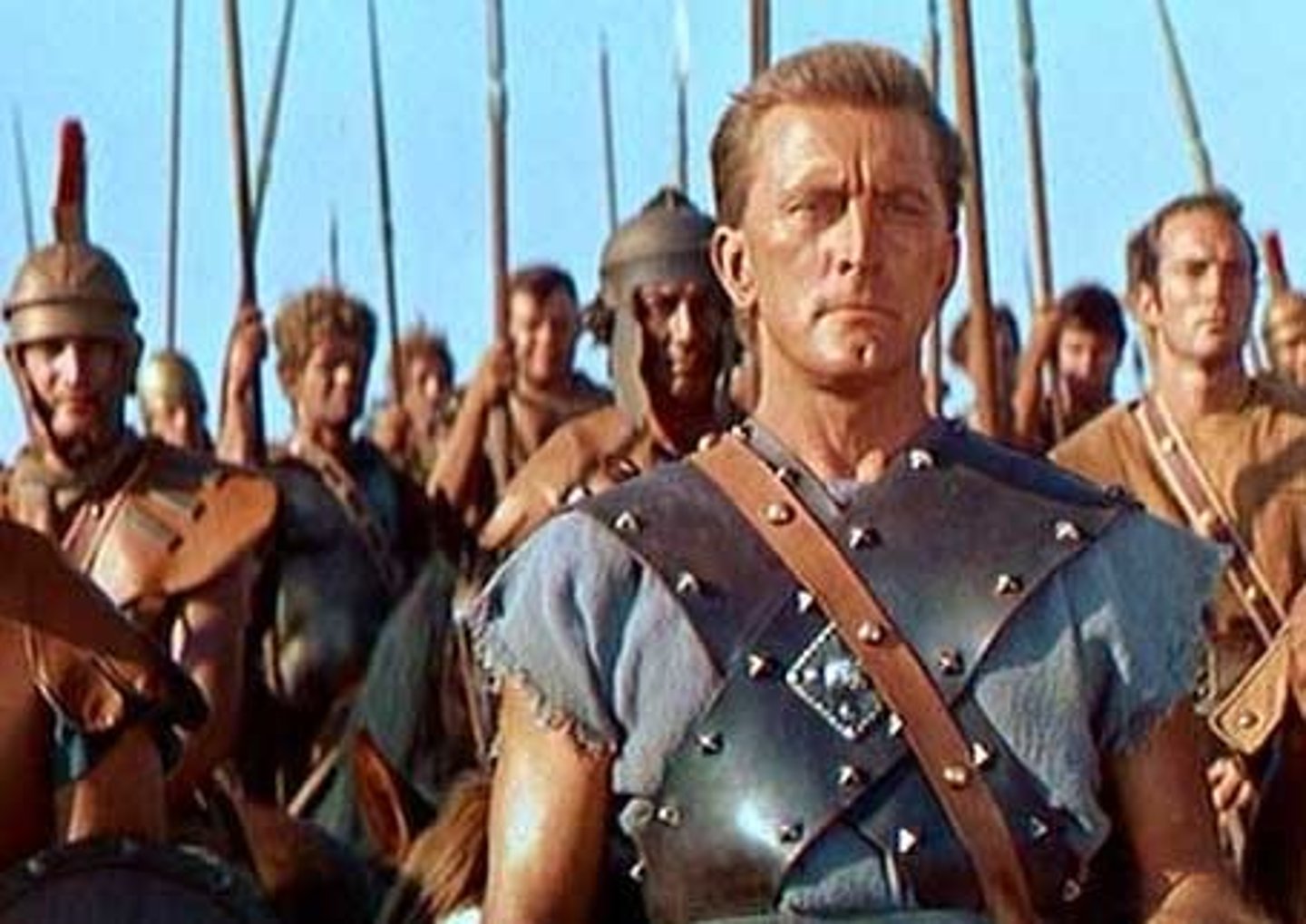
"Three Obediences"
A Confucian principle that emphasizes a woman's obedience to her father, husband, and son.
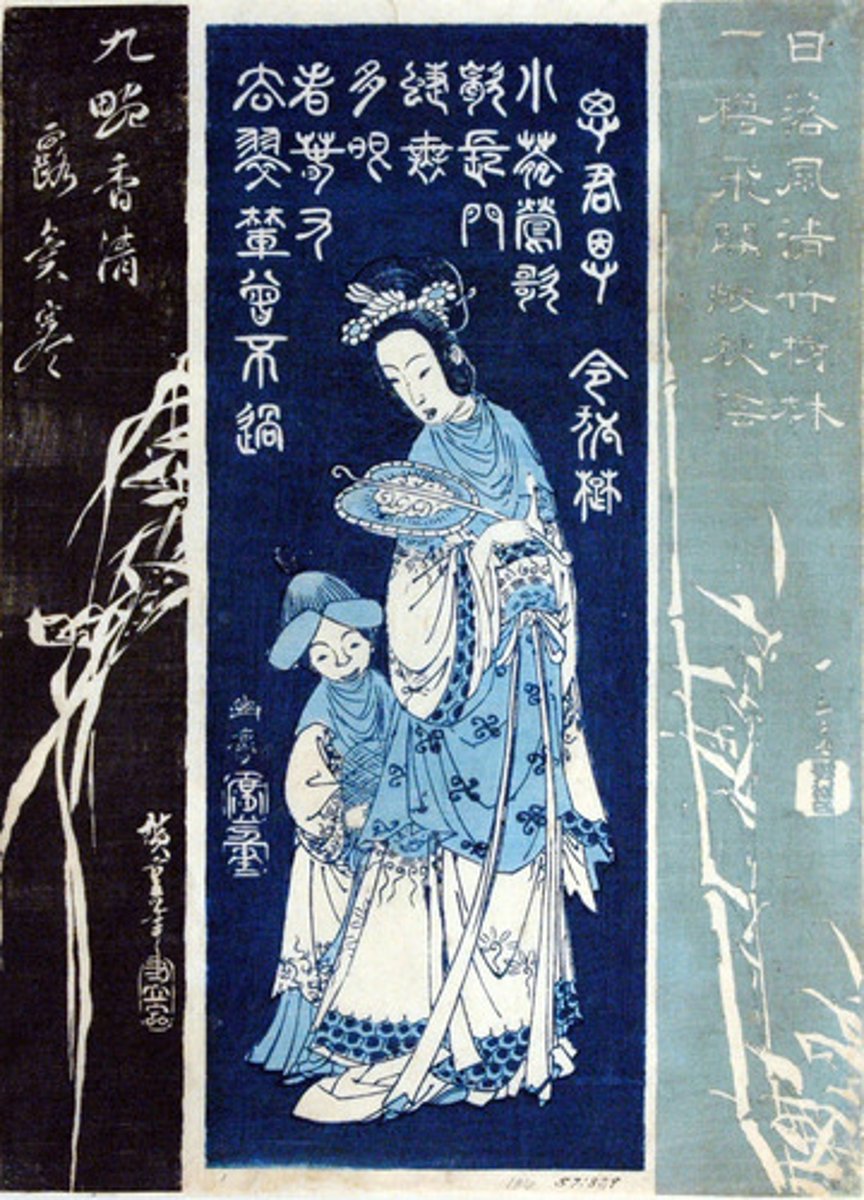
Patriarchy
A social system in which men hold primary power and dominate in roles of political leadership, moral authority, and control of property.
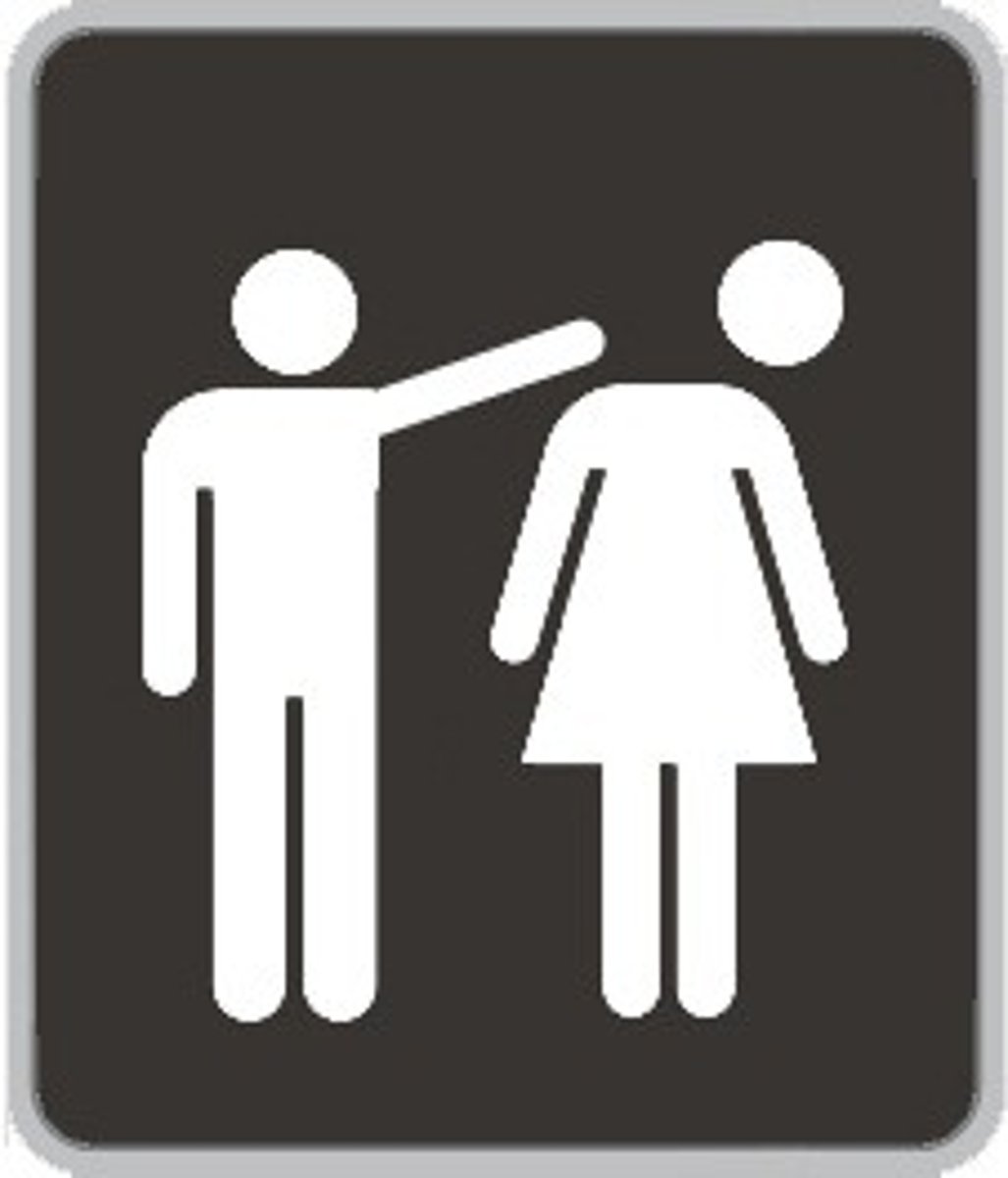
Empress Wu
The only female emperor in Chinese history, known for her strong rule during the Tang dynasty.
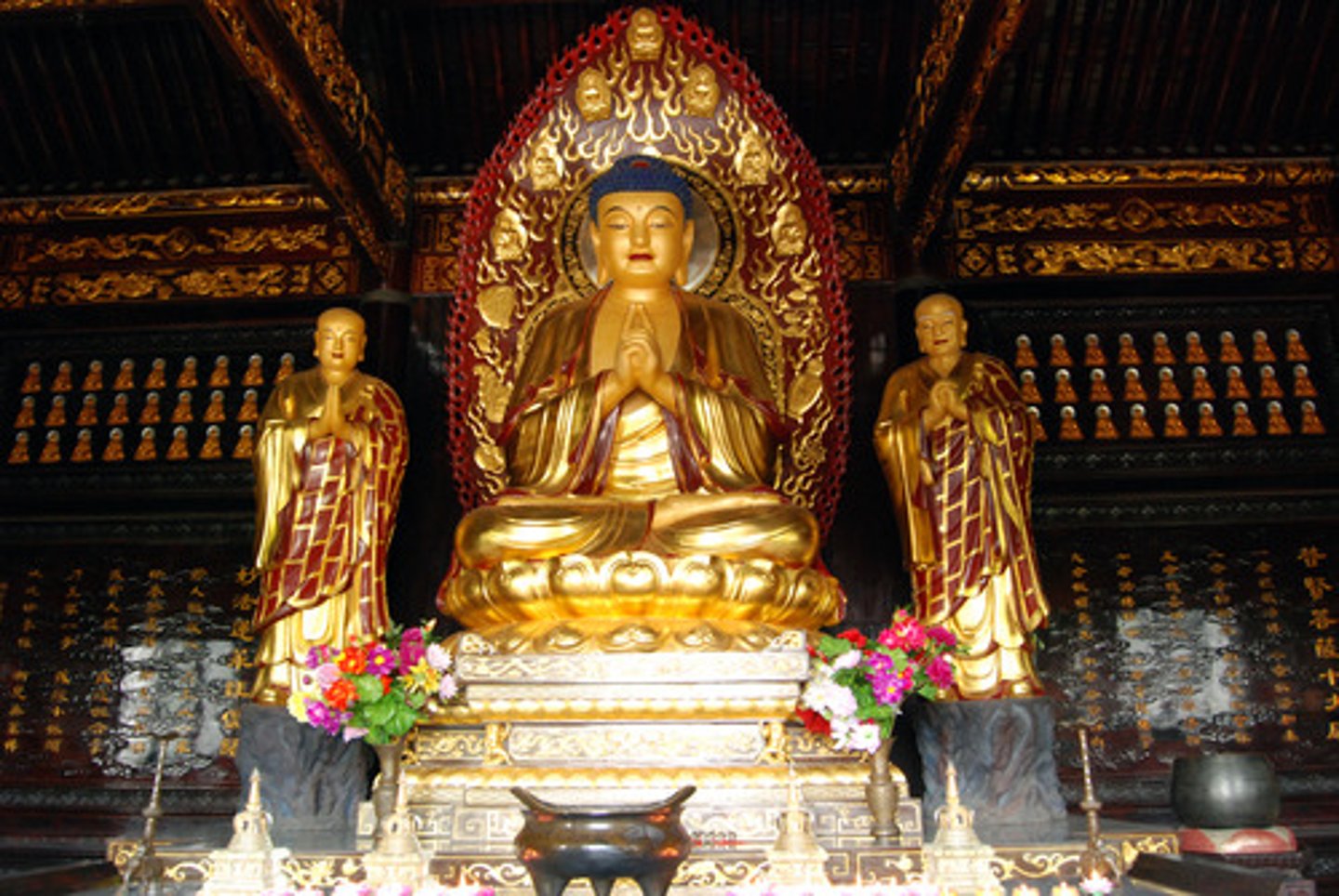
Aspasia & Pericles
Aspasia was a prominent woman in ancient Athens, known for her relationship with the statesman Pericles.
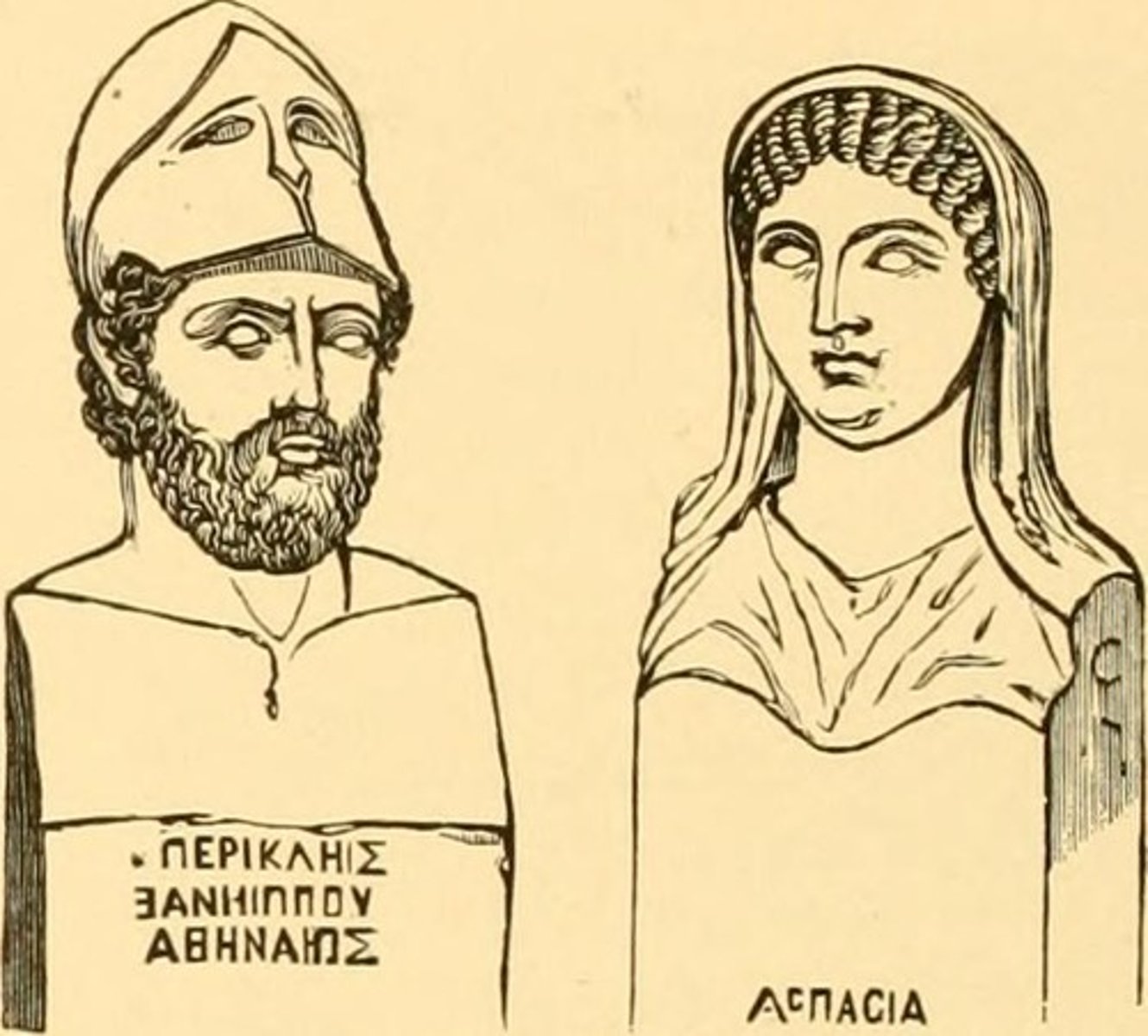
Helots
A subjugated population in ancient Sparta, primarily agricultural laborers who were owned by the state.
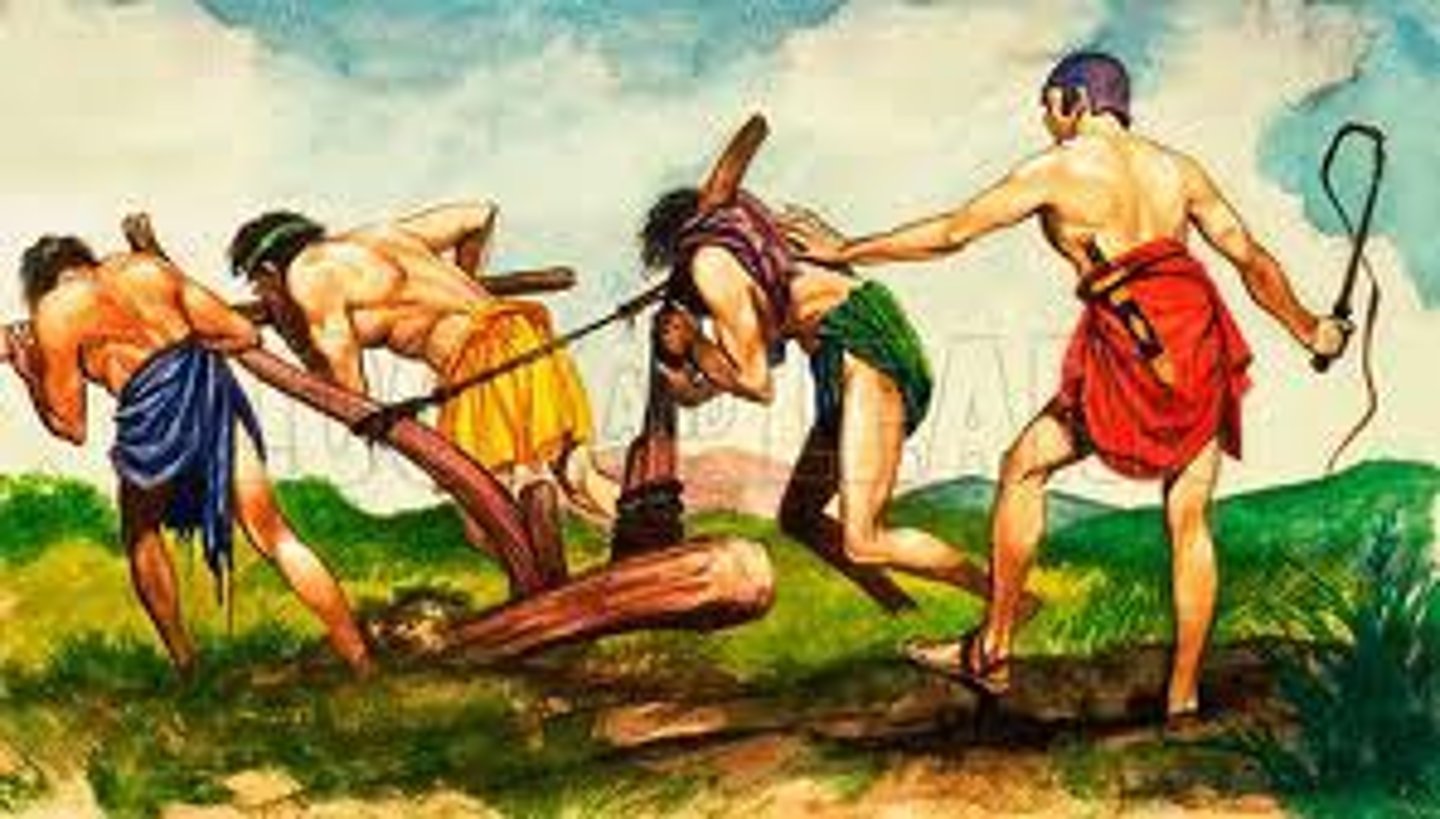
Civil Service Exam
A series of examinations in imperial China to select candidates for the state bureaucracy.
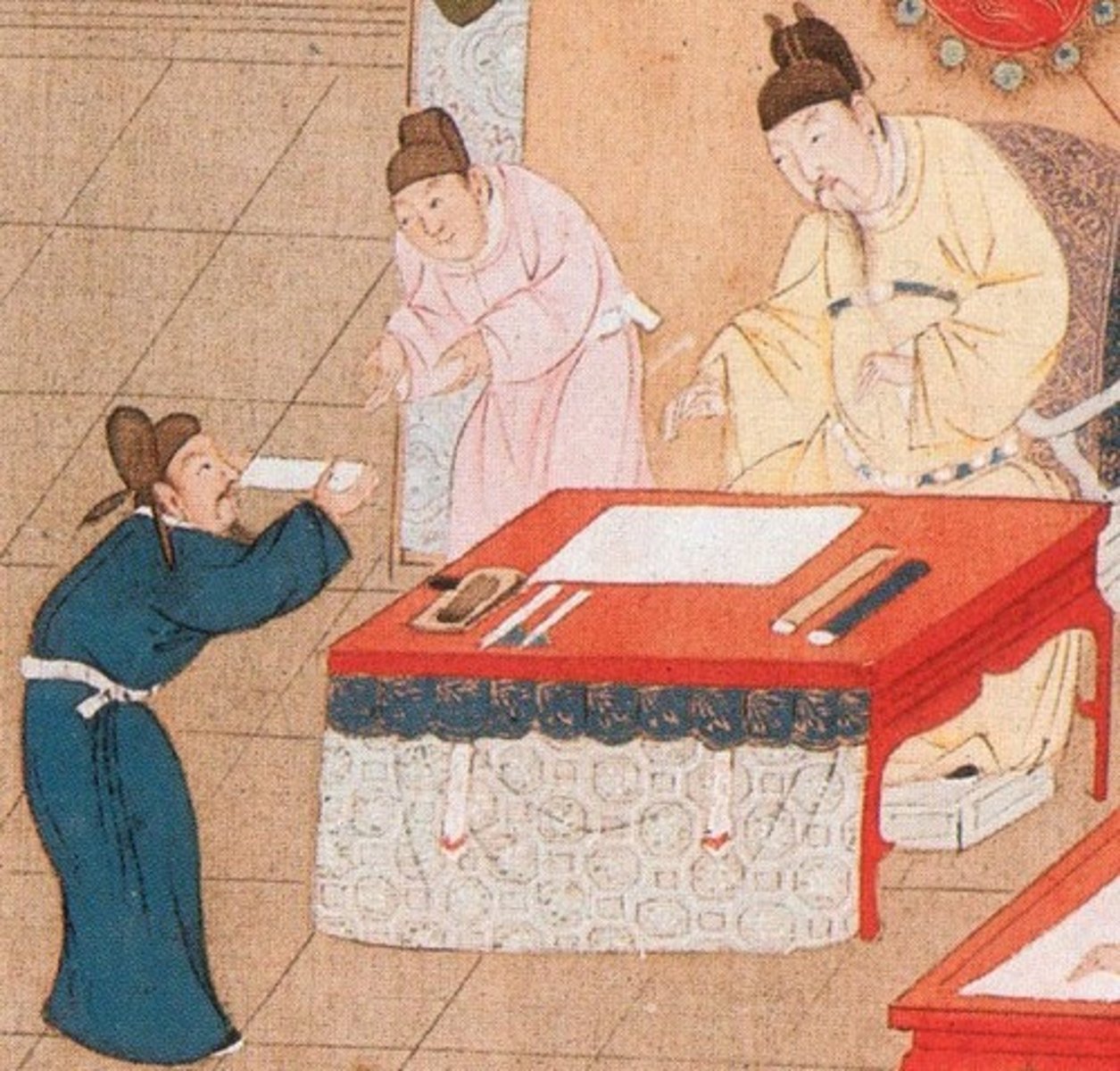
Landlord Class
A social class of landowners who held significant economic and political power.
Mean People
A term used in ancient China to refer to the lower social classes, often laborers or commoners.
Untouchables
A term used in India to describe those outside the caste system, often facing severe discrimination.
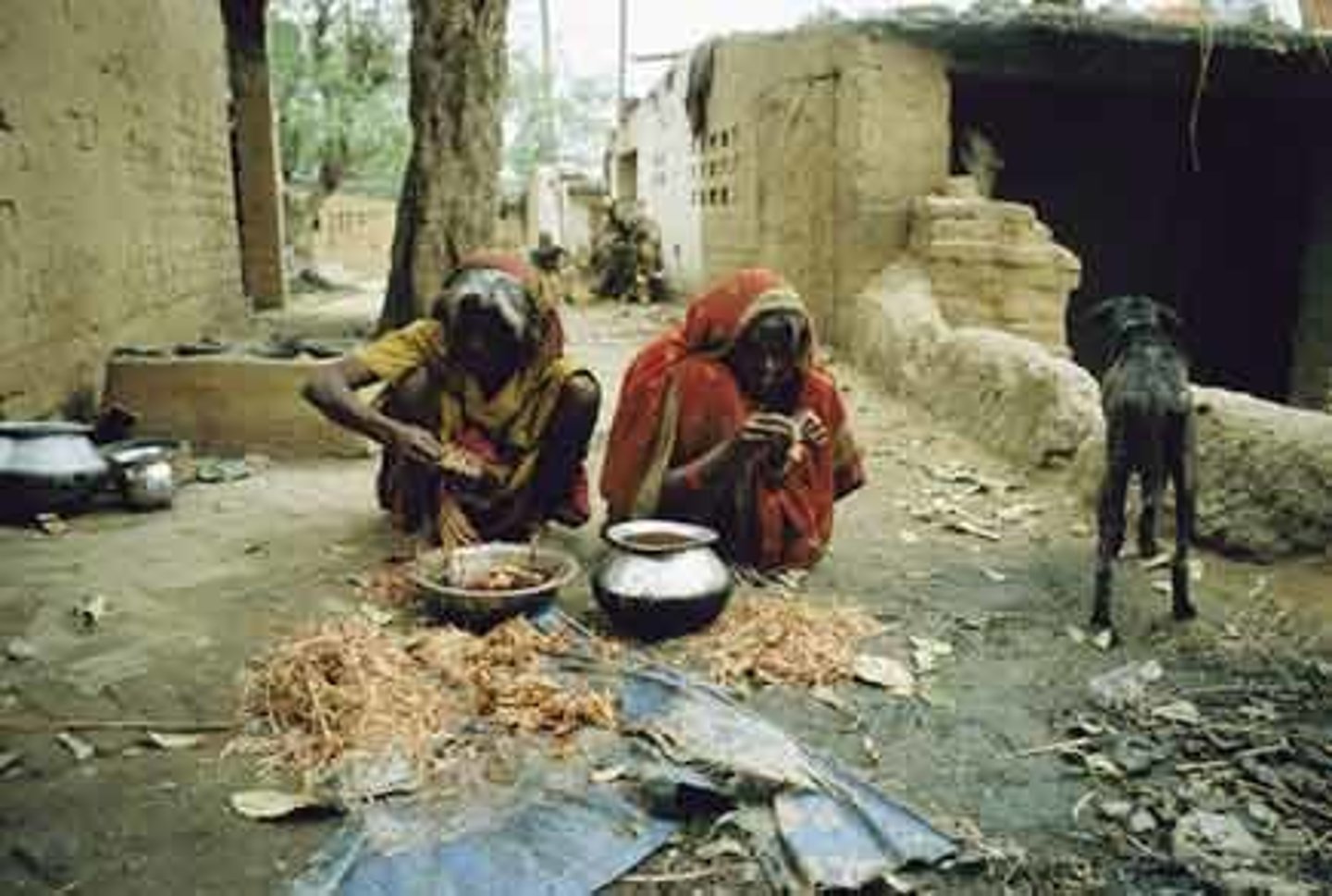
Dharma
A key concept in Indian philosophy and religion, referring to the moral law and duties of an individual.
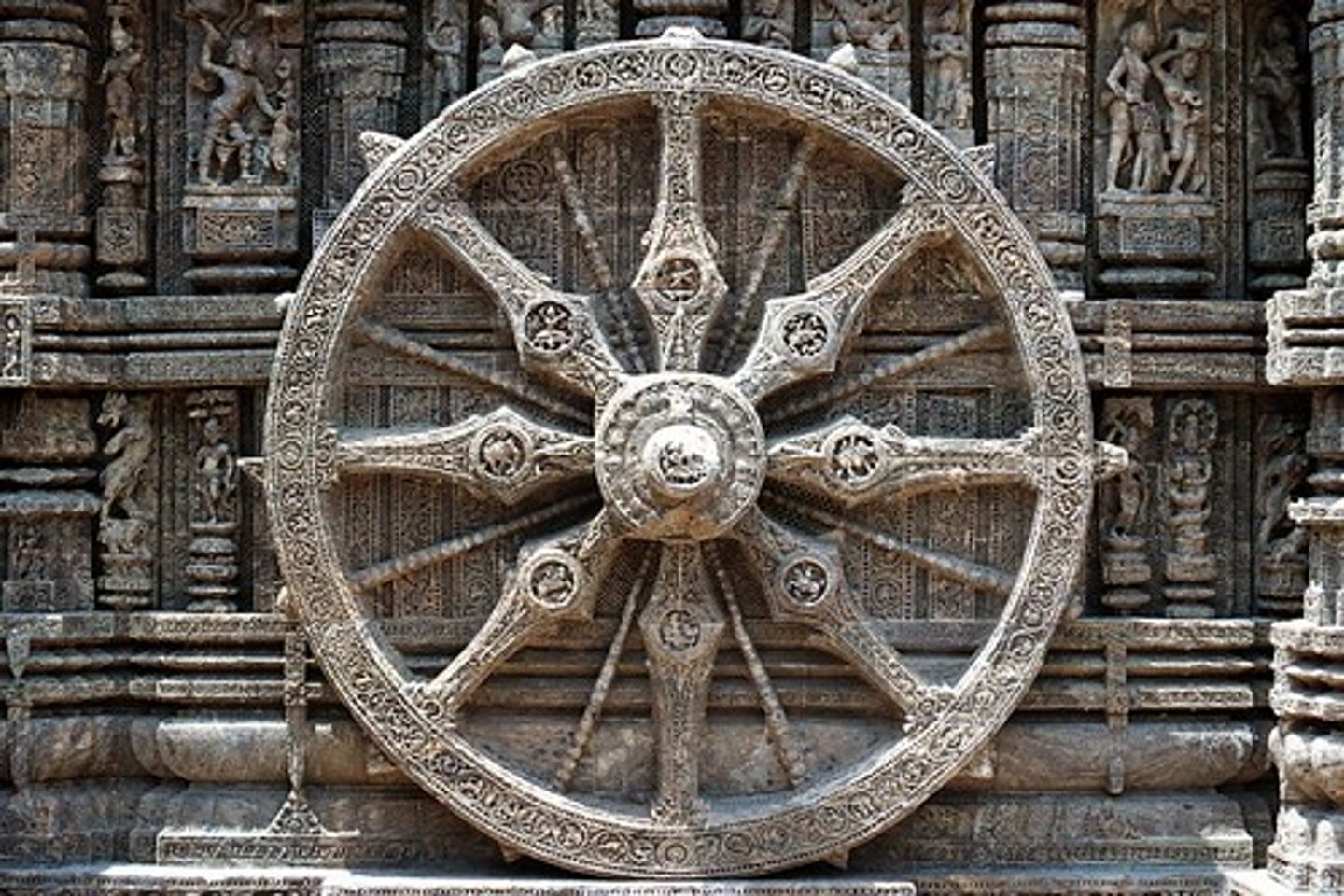
Slav
A member of a group of peoples in Eastern Europe and Northern Asia, often associated with the historical context of slavery.
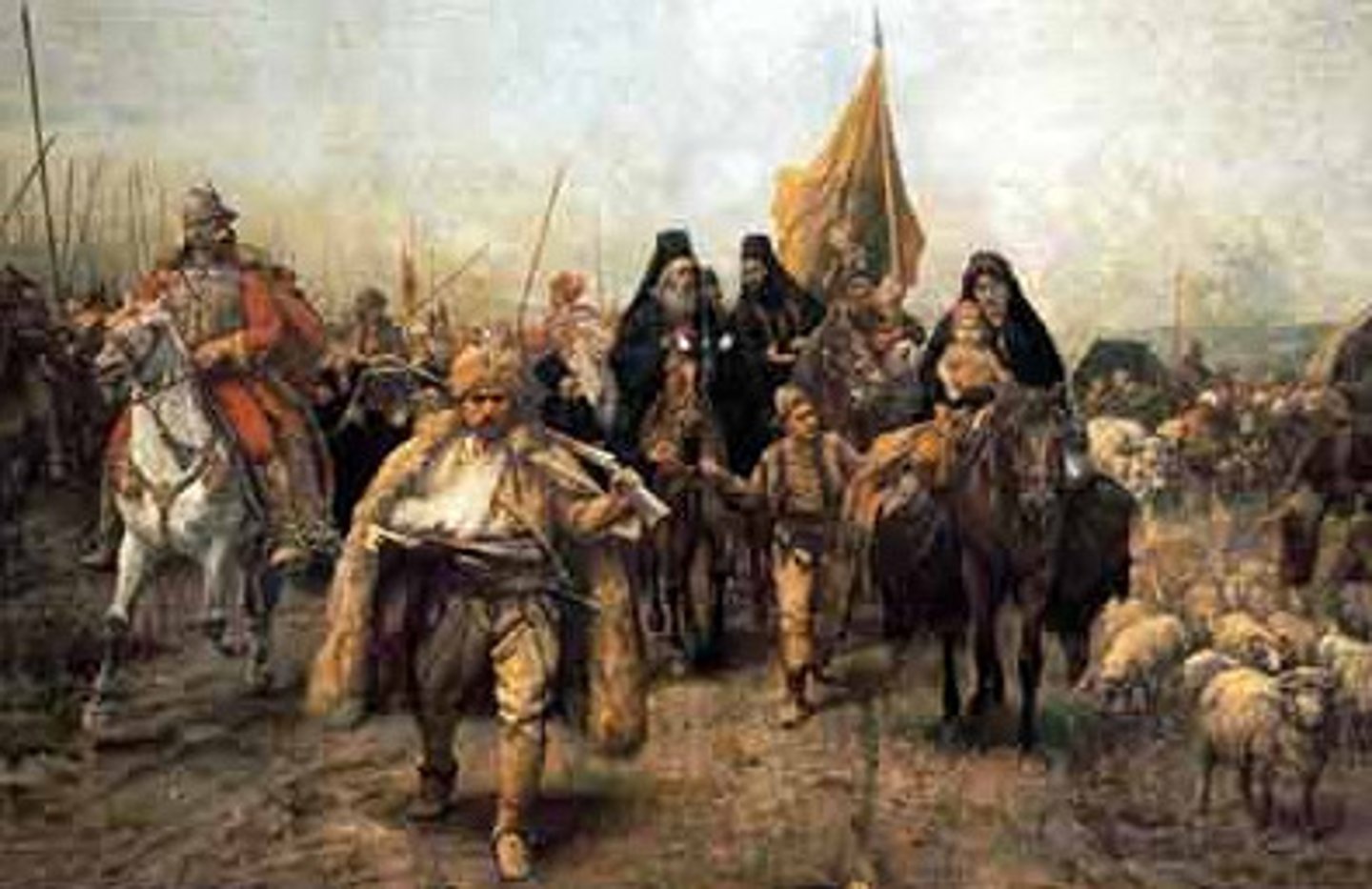
Manumission
The act of freeing a slave by their owner.
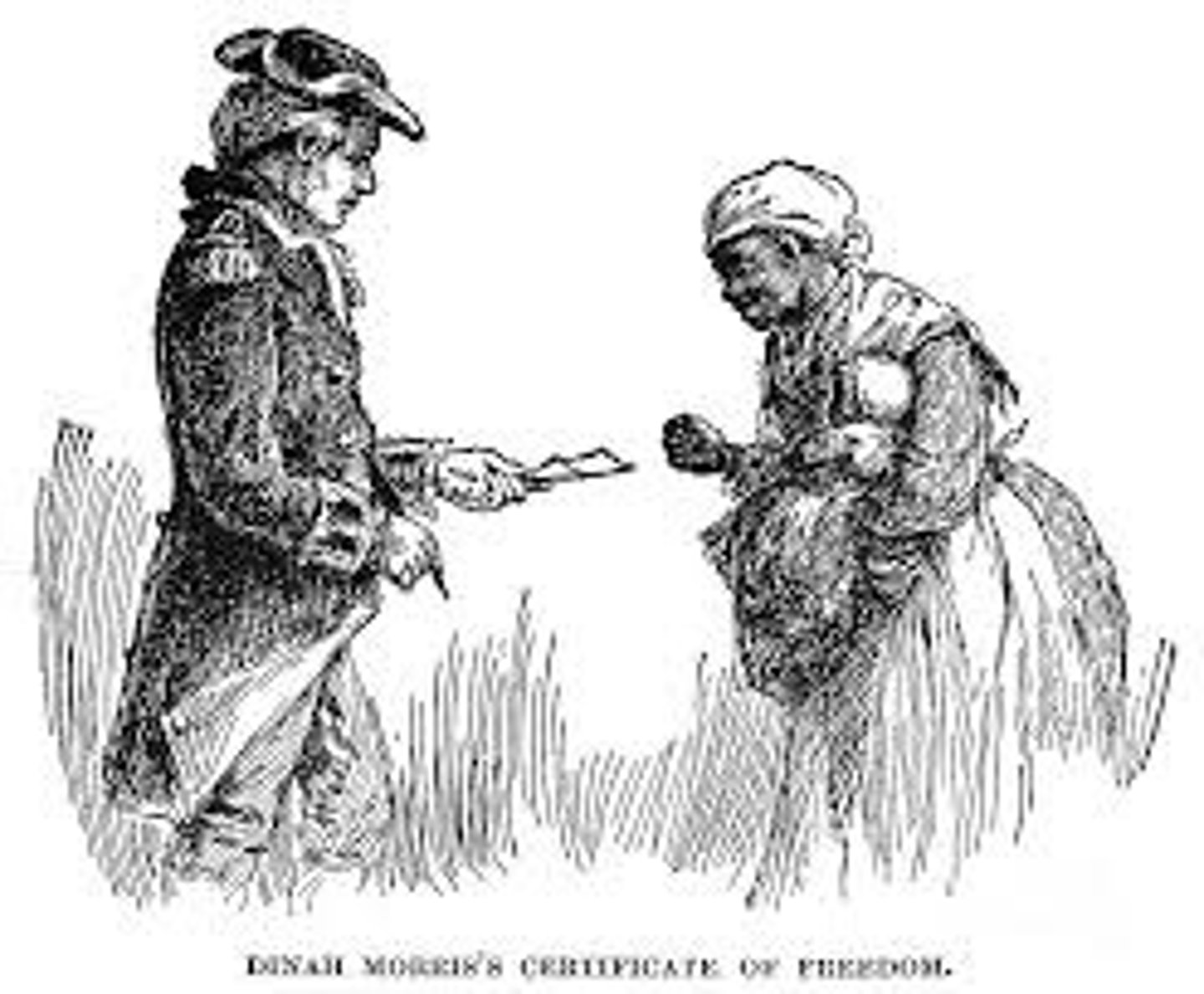
patricians
The aristocratic class in ancient Rome, typically holding significant political power.
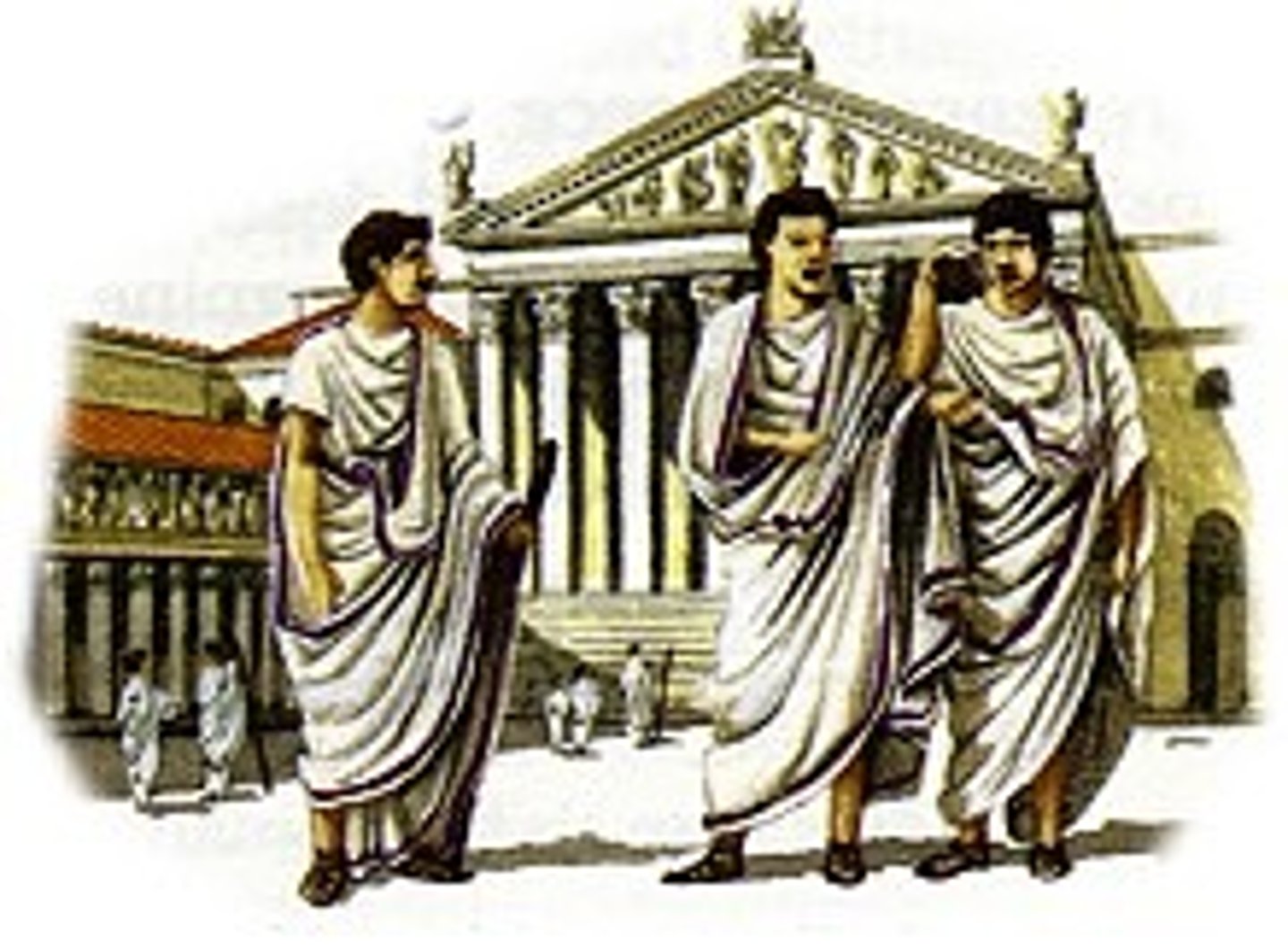
plebeians
The common people of ancient Rome, who had limited political rights compared to patricians.
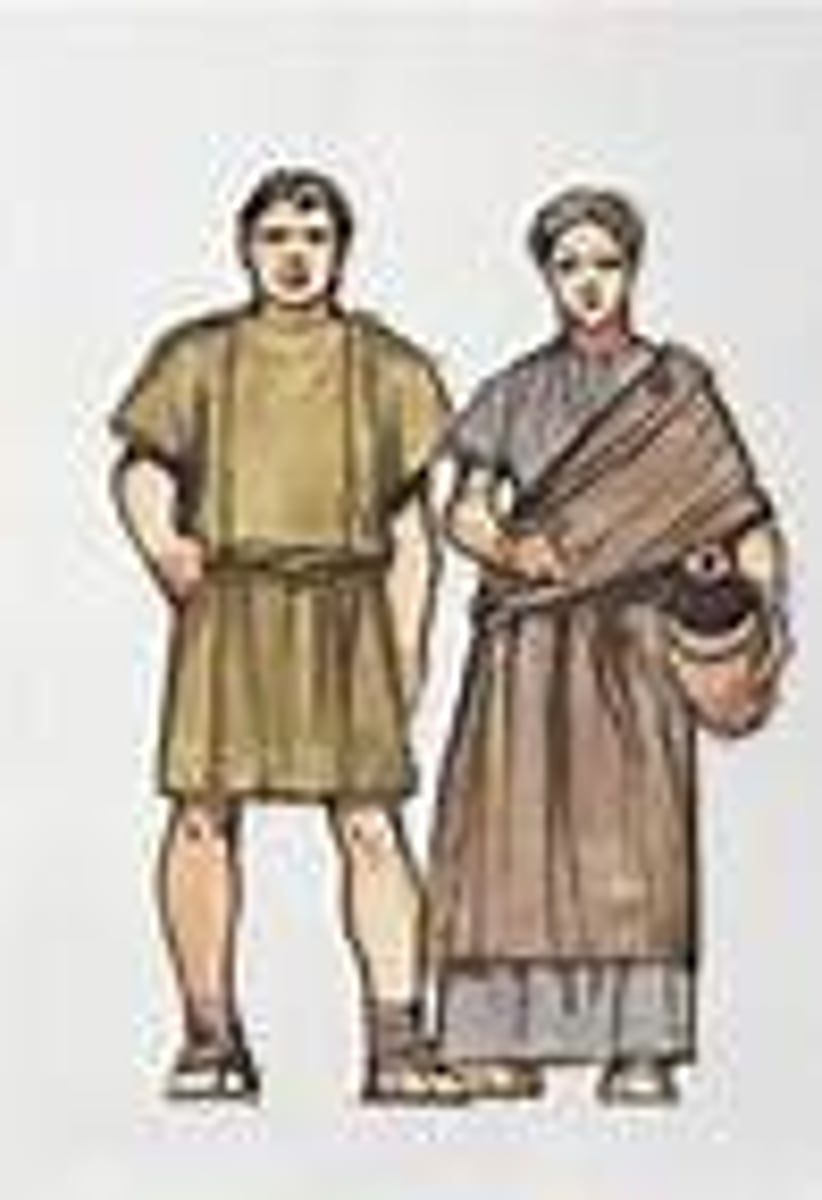
paterfamilias
The male head of a Roman family, holding legal authority over the household.
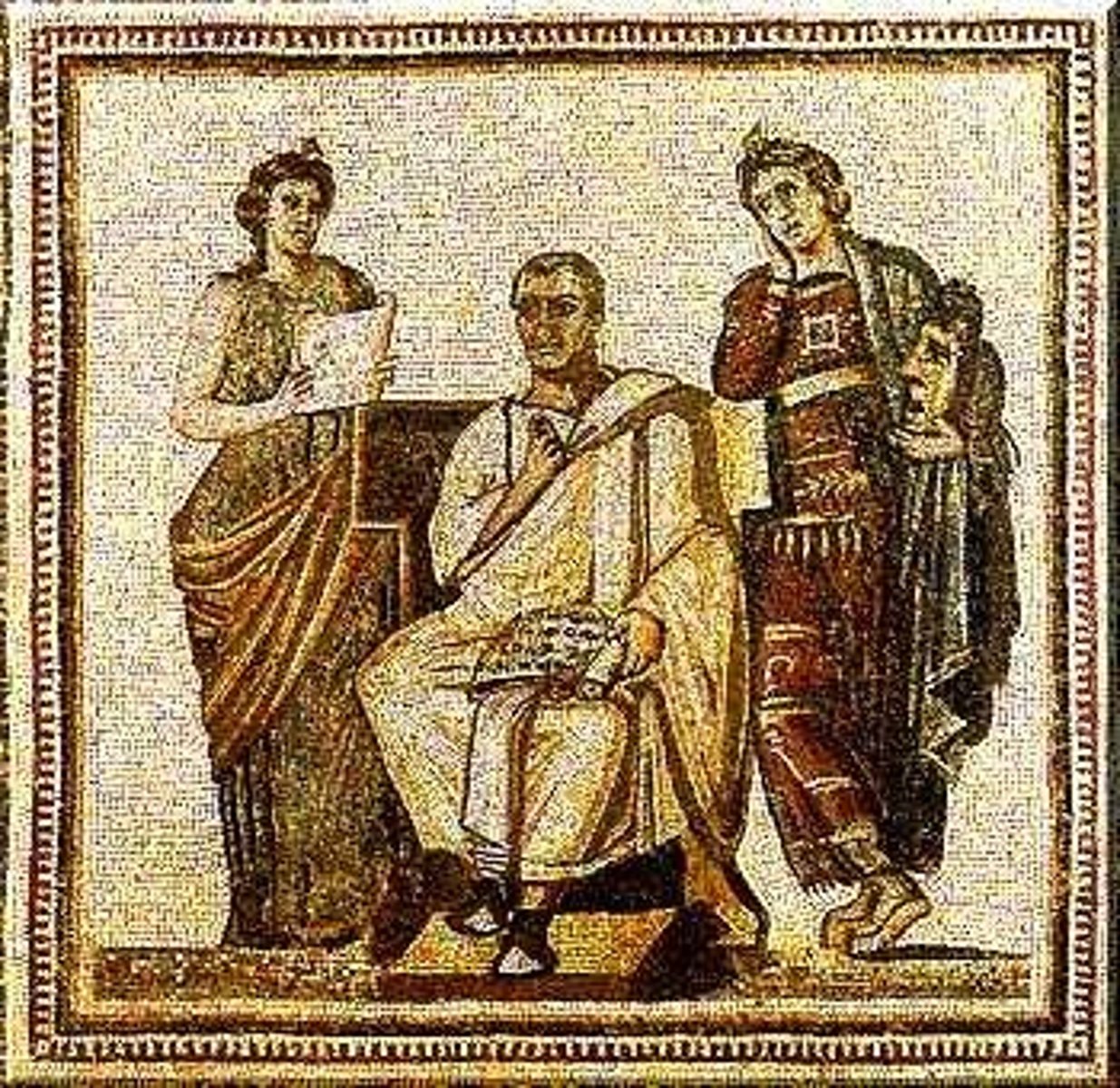
olympias
The mother of Alexander the Great and a prominent figure in Macedonian history.
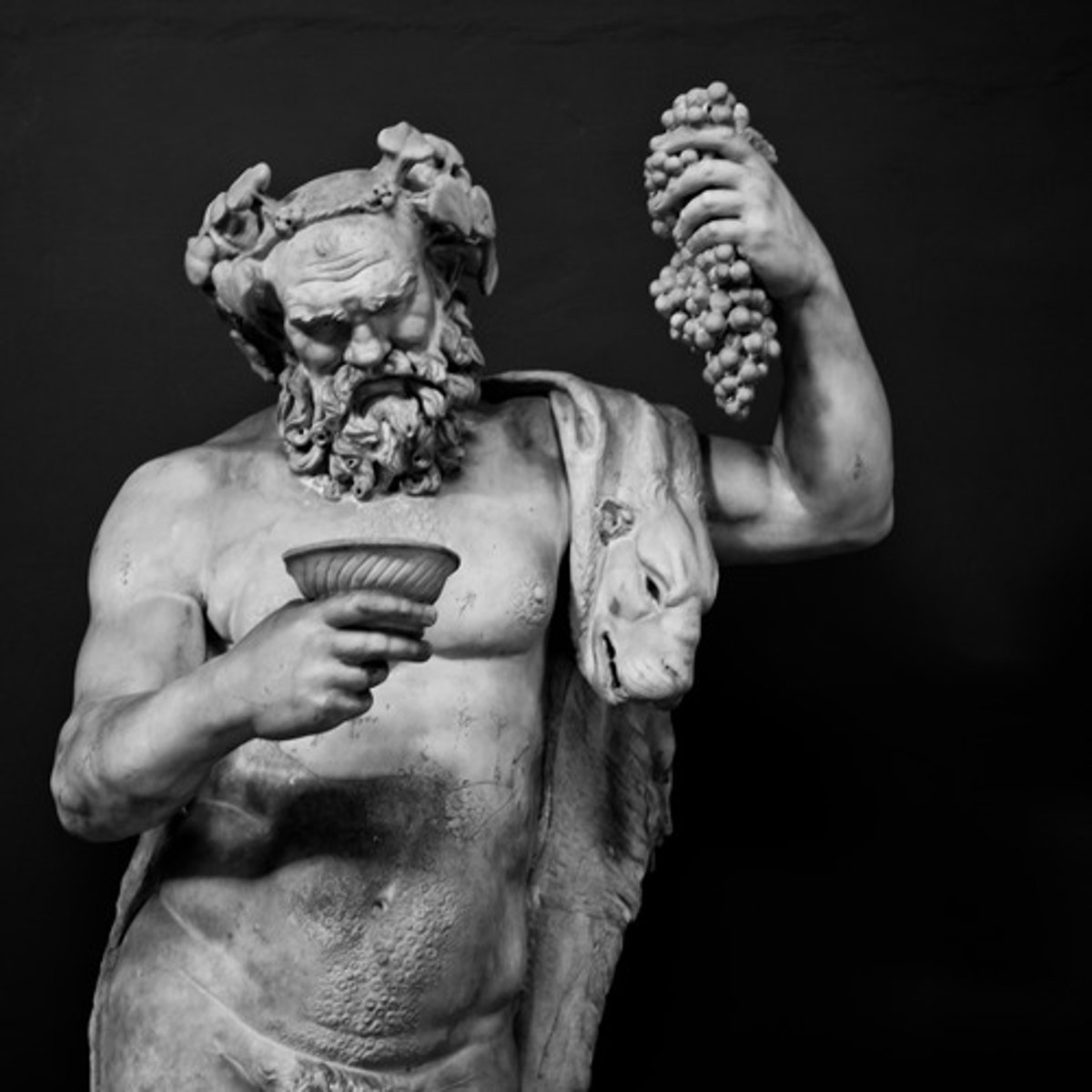
pericles' funeral oration
A famous speech given by the Athenian leader Pericles, honoring those who died in the Peloponnesian War.
